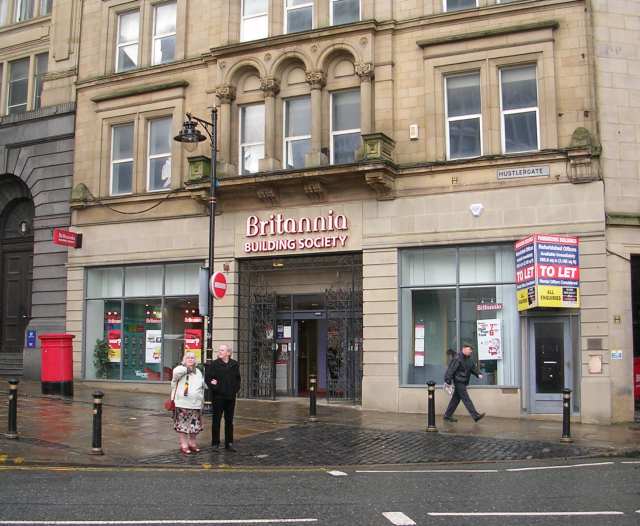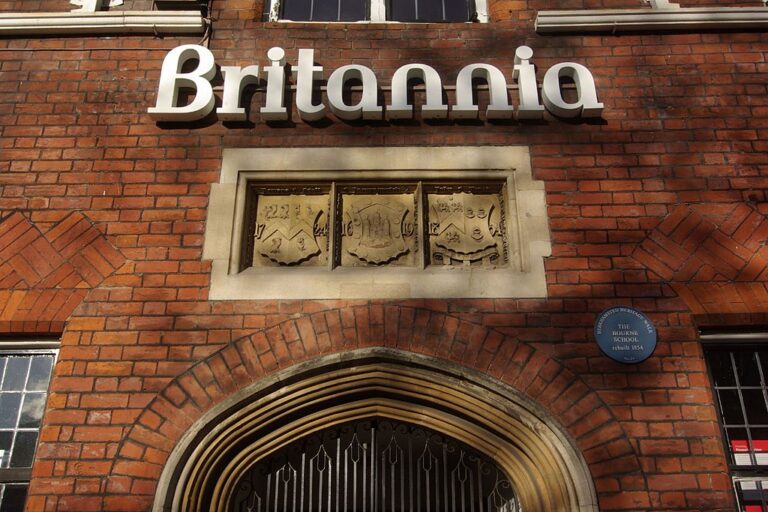Many immigrants to the UK prefer to manage their money through a local account. This can help avoid international banking fees and makes it easier to pay bills and receive salaries. The UK has a variety of banks to choose from, but building societies are also worth considering, along with their unique feature—the building society roll number.
So, what exactly are building societies, and why might you need a building society roll number? Let’s take a closer look with this Remitly guide.
What is a Building Society?
Building societies are financial services institutions with branches on high streets throughout the UK. While they may appear similar to banks, there are two key differences:
Services
Most building societies offer a narrower range of financial products and services than banks. Some provide current accounts for day-to-day transactions, debit cards, personal loans, and insurance. However, they primarily focus on mortgages and savings accounts.
Structure
Building societies are mutual organisations, meaning they’re owned by their members. By opening an account or obtaining a mortgage, you automatically become a part-owner of the building society. This allows you to attend annual general meetings and vote on how the organisation operates, though participation is entirely optional.
Banks, by contrast, are typically public companies listed on the stock market, focused on generating profits for shareholders. Building societies reinvest their profits to benefit members, which may result in higher interest rates on savings accounts and lower rates on mortgages.

What’s a Building Society Roll Number?
A Building Society Roll Number is a unique identifier used by building societies to manage individual accounts. It functions similarly to a bank account number but is specific to building societies.
Decoding the Roll Number
Think of a roll number as a key that unlocks your account details. It is particularly useful for transactions like transfers or direct debits, ensuring your money is directed correctly.
Why It’s Different
Unlike standard bank account numbers, roll numbers are unique to building societies. They are used alongside sort codes but serve a different purpose. Roll numbers are shorter and often combine numbers and letters.
How Do I Pay Money Into My Building Society?
To deposit money into your building society account, you’ll generally need:
- An account number
- A sort code (identifies the financial institution and branch)
Some building societies also require a roll number. This may be referred to as a personal or unique account number or reference number. It ensures payments are allocated to the correct account, especially when the same sort code and account number are shared across multiple accounts. If required, enter the roll number in the ‘reference’ field during the payment process.
The exact process can vary between building societies, so it’s always a good idea to check their specific requirements to avoid delays.
Send and Receive Money Internationally in the UK with Remitly.
Get started with our free mobile app.
Download
History of Building Societies
The first building society, Ketley’s, was established in Birmingham in 1775. Early building societies were pioneering examples of ‘crowdfunding,’ where members pooled resources to fund land purchases and home construction. These societies were ‘terminating,’ meaning they dissolved once all members were housed.
By the mid-19th century, many building societies became permanent organisations, offering indefinite financial services to members. The Building Societies Act of 1986 marked another major milestone, broadening their range of services and allowing them to demutualise and operate like banks. Notable societies that followed this route include Abbey National, Bradford & Bingley, and Halifax.
Today, UK building societies manage assets of around £480 billion and handle residential mortgages amounting to approximately £357 billion. While some have a national presence, others remain smaller, regional operations. Many actively support their communities through charitable contributions and staff volunteering initiatives.
FAQs About Building Societies
What is a building society roll number used for?
A roll number is used to identify individual accounts within a building society. It ensures payments are directed to the correct account, especially in institutions where multiple accounts share the same sort code and account number.
Do I always need a roll number for building society transactions?
Not always. Some building societies have moved to standard account numbers and sort codes for all transactions. Check with your building society to confirm.
Can I transfer money from a building society to a bank account?
Yes, transfers between building societies and banks are straightforward. You’ll need the recipient’s sort code and account number, and possibly their roll number if transferring to a building society.
Are building societies safer than banks?
Building societies and banks in the UK are both covered by the Financial Services Compensation Scheme (FSCS), protecting deposits up to £85,000 per person per institution.
How do I find my roll number?
Your roll number can usually be found in your account documentation, online account, or official correspondence from your building society.
What’s the difference between a building society and a bank?
The main differences are in services and structure. Building societies are member-owned mutual organisations, while banks are shareholder-owned and publicly listed companies.
